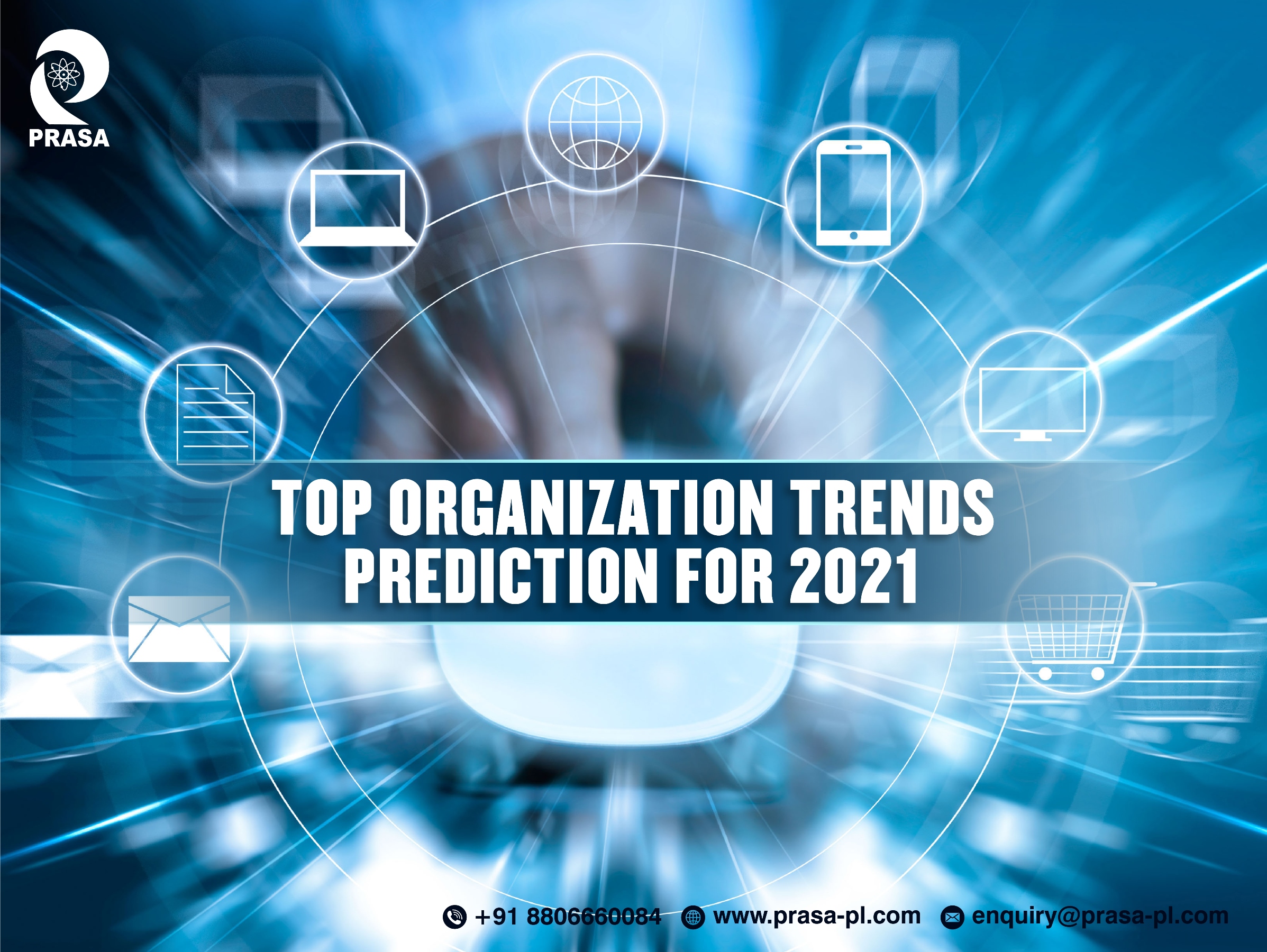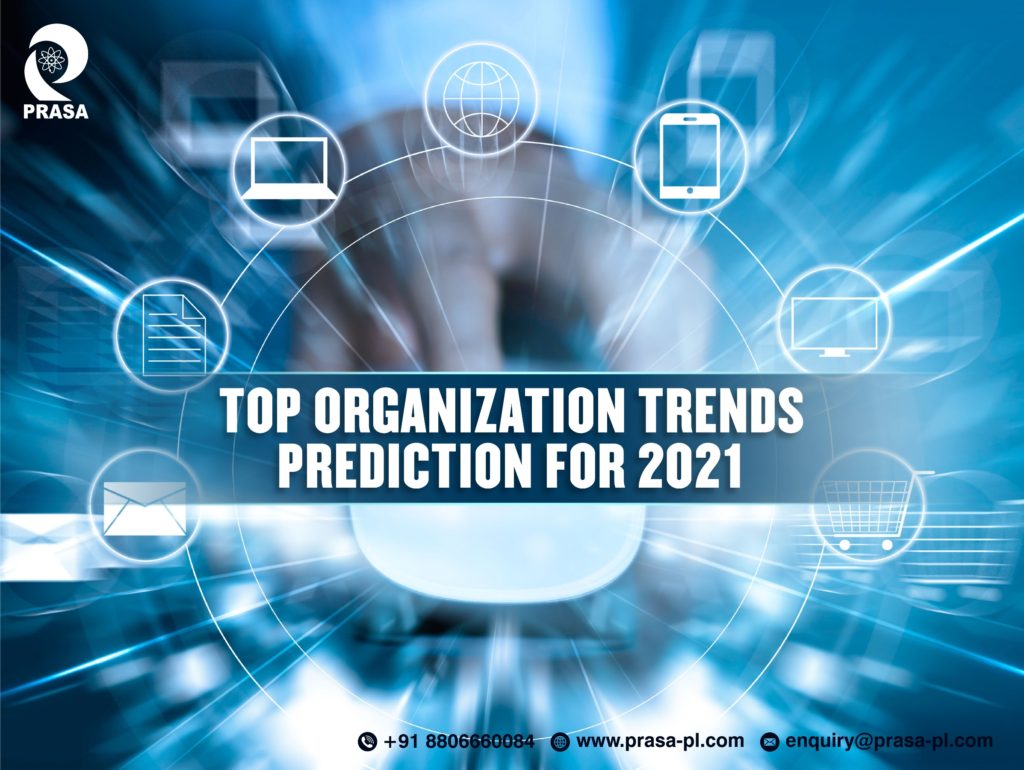Throw out your long-term business plans; they are already outdated as you make them. The best way to be prepared for the coming year is by being proactive, responsive and open to new possibilities around every corner. You may very well have only your intelligence and the key skill of remaining prepared for options. It is a slight exaggeration but going by the changes, we have seen in 2020, reality is wilder than fiction. However, thankfully not everything is unpredictable.
Here are the top trends that organizations will have to address in the coming year. The purpose of this is to help prepare organizations for the future by collecting, assessing, and reporting the trends that will most influence them while equipping professionals with the insights they need to stay relevant in their professions.
- Digital adoption will be even faster post Covid-19: Digital transformation is all about connecting people, process and customers cognitively. It is the emergence of ‘total experience’, which combines customer experience, employee experience and user experience to transform the business outcome. The goal is to improve the overall experience where all of these pieces intersect, from technology to employees to customers and users.
- . Hyper automation will aggressively be driven by organizations: Having legacy business processes that are not streamlined will create immensely expensive and extensive issues; a ‘patchwork’ of technology that is not lean, connected nor optimized. Digital business requires efficiency, speed and democratization and therefore a comprehensive digital strategy. Sadly, for organizations that do not focus on these aspects, they will not succeed in this race of the ‘new normal’.
- Re-imagine and Reinvent to remain relevant: Business models are changing due to new demands and it is important for us to reimagine and reinvert to remain relevant. Organizations will have to accelerate their digital business strategy to drive faster digital transformation; they need to be alert and make quick business decisions which are data driven. An intelligent business will need an increase of autonomy and democratization across the company, enabling various departments of the organization to respond quickly instead of getting their operations delayed due to inefficient processes.
- Individual leadership will play a key role in the success of an organization: Leaders should take ownership, be nimble, build the DNA of innovation and think out of the box. There needs to be a shift in the leadership’s attitude to drive a culture of trust, empowerment, and build a hierarchy-less organization, while at the same time coupled with a start-up like environment of taking challenges boldly, failing fast, tweaking and reinventing. The coming years will give emphasis to this style of leadership and it is critical when we are rewriting the way business needs to be done.
- Continuous learning for individuals: In the fast paced, dynamic, complex environment (the VUCA world) that we currently operate in, one must remain relevant and fit for the future by striving to continuously learn. What was relevant in a workplace in the beginning of 2020 is already replaced with new norms. New technology will be adopted even faster in the coming days – AI as a service will be adopted more aggressively, autonomous driving will gain momentum, emergence of 5G will give citizens superfast browsing and enable faster adoption of smarter machines, and extended reality will create immersive digital experiences. Individuals should equip themselves for the future by seeding a habit of continuous learning.
- ‘Work from anywhere’ operations model is emerging as the new norm: At its core, this operating model allows for business to be accessed, delivered and enabled anywhere — where customers, employers and business partners operate in physically remote environments. The new norm will be a hybrid model, which will be balancing dependency on hardware and collaboration. Agile, digital infrastructure and virtual workspace solutions will surge to cater to seamless team communication and collaboration. Leaders should ponder the phrase ‘Are you prepared for this working model’.
These trends will bring about a massive shift in the points of human interaction with technology, with machines and with each other. It is all but necessary that we remain updated, be the architects of change, and if I may say so, be the new version releases of ourselves. Else, we will face the same fate as legacy technology in a post Covid-19 world.


